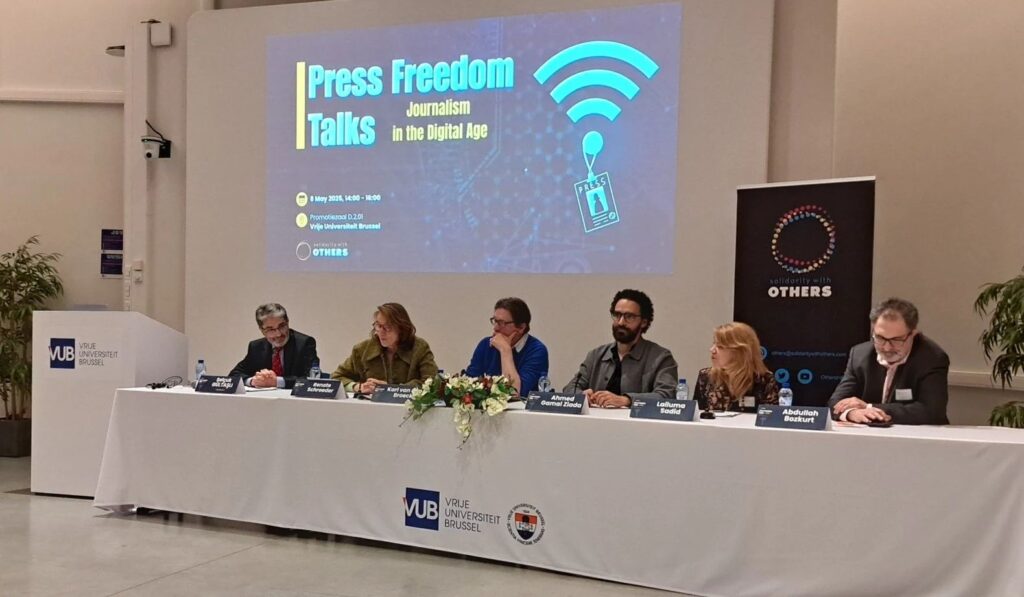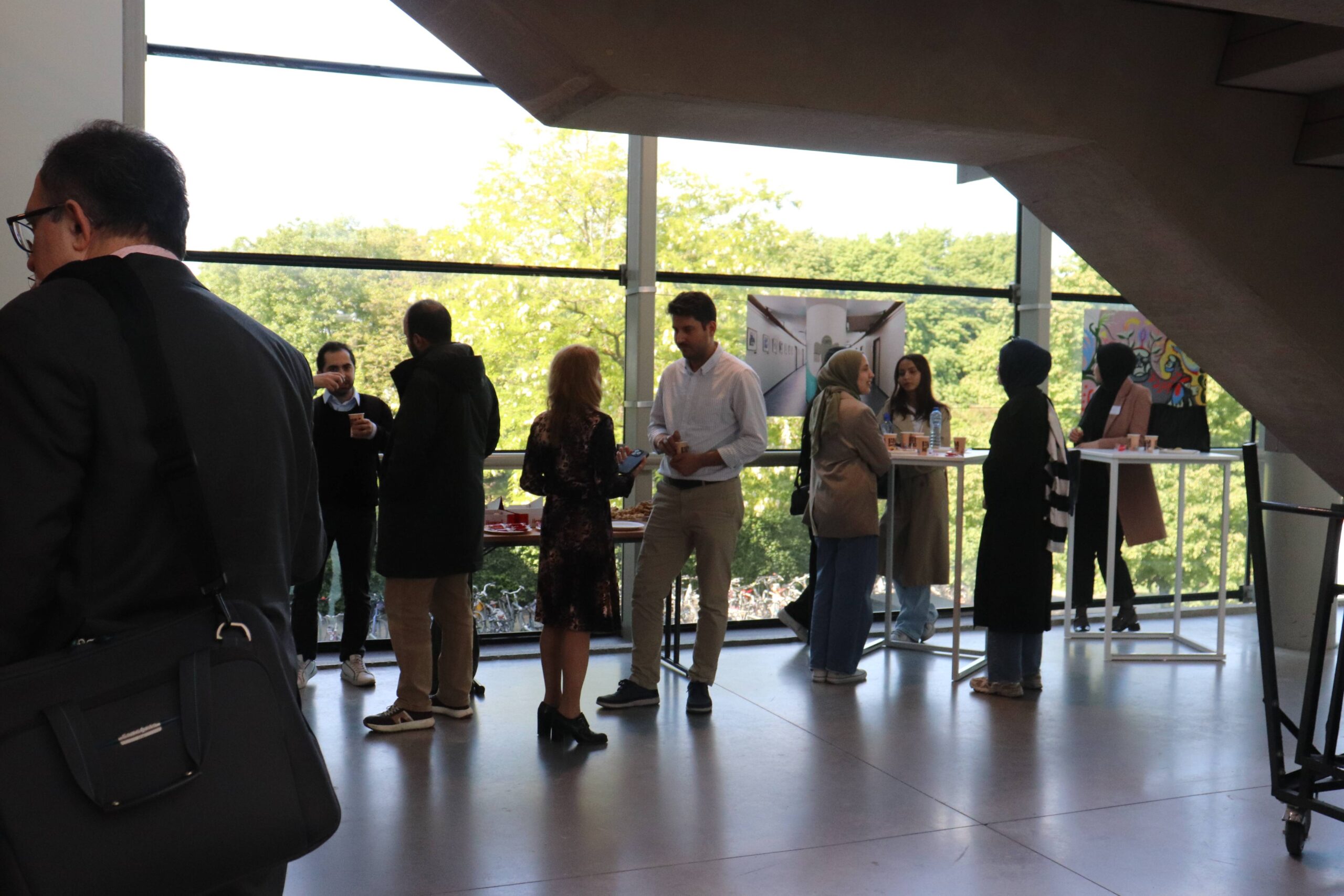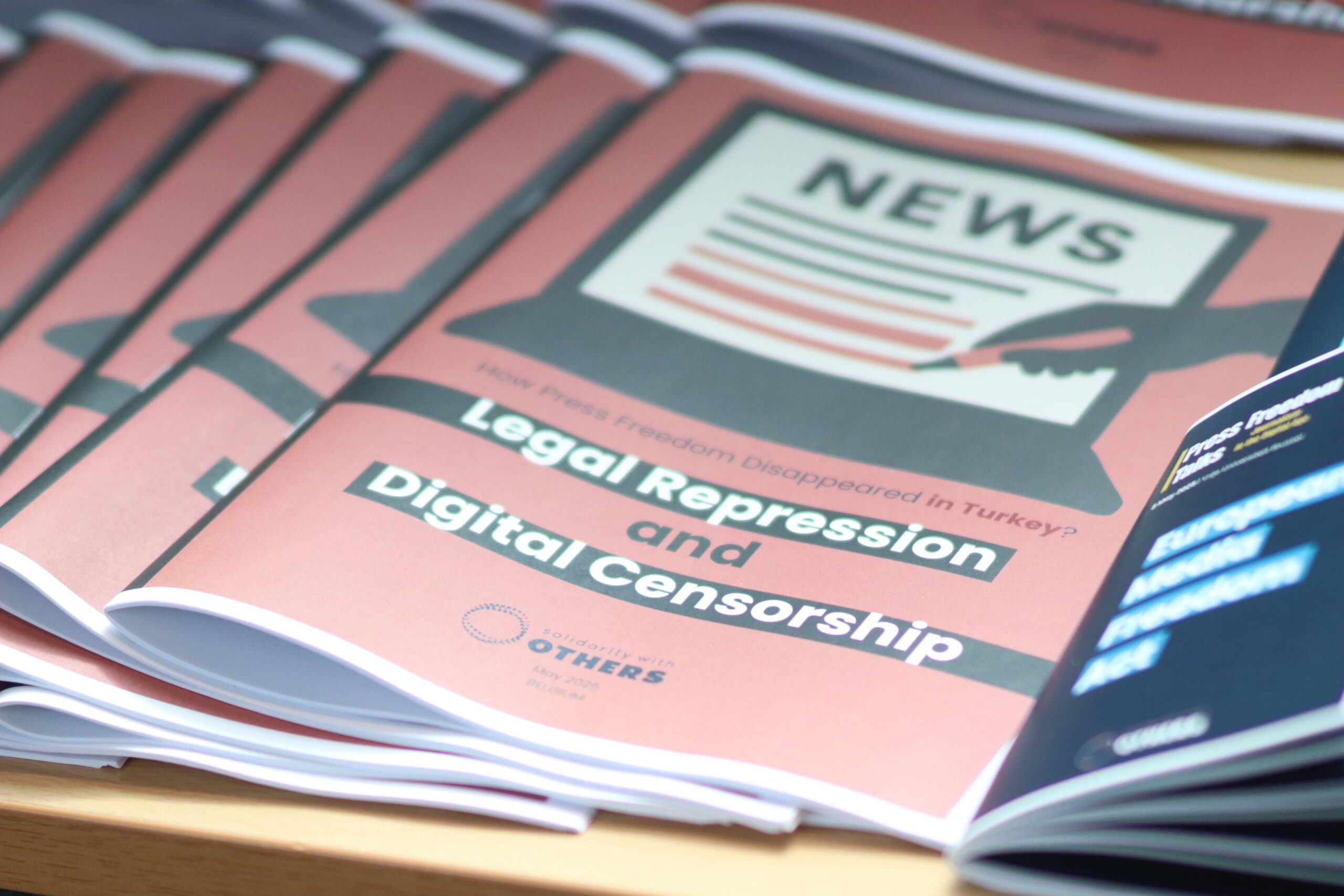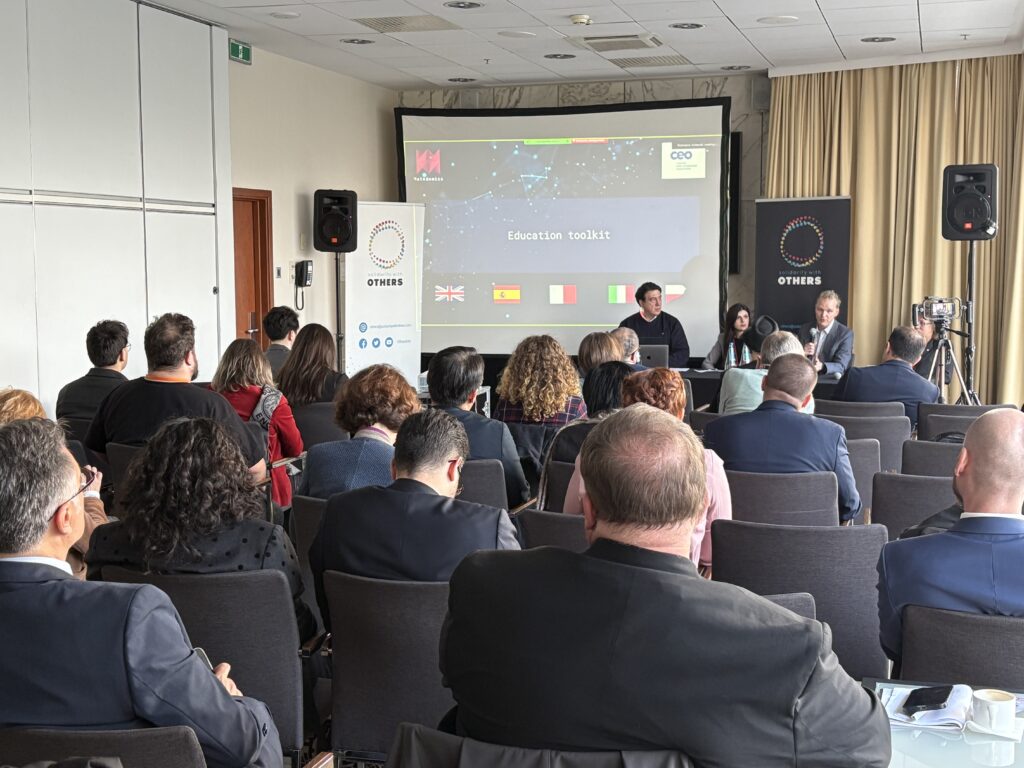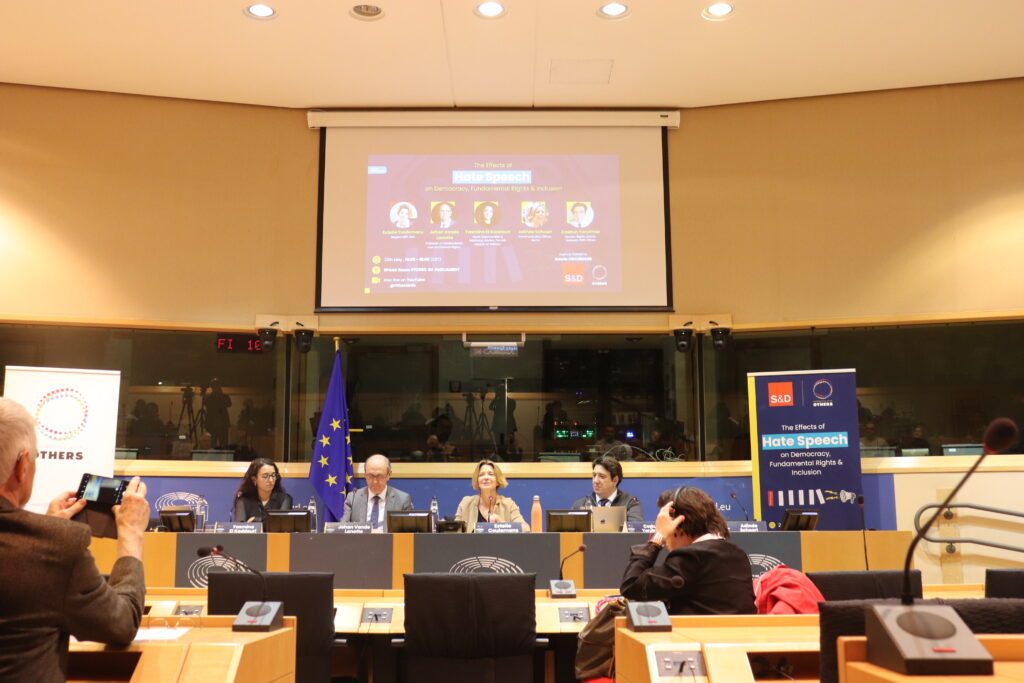Solidarity with OTHERS is proud to share the outcomes of our timely panel discussion, “The Press Freedom Talks: Journalism in the Digital Age,” held on 8 May 2025 at Vrije Universiteit Brussel (VUB), in recognition of World Press Freedom Day (3rd May).
The event brought together prominent voices in journalism, civil society, and policy to explore the evolving threats to media freedom in the digital era. We were honored to welcome our distinguished speakers: Renate Schroeder (European Federation of Journalists), Abdullah Bozkurt (Nordic Monitor), Ahmed Gamal Ziada (Zawia3), Karl van den Broeck (Apache), and Lailuma Sadid (En-Gaje), with moderation by journalist Selçuk Gültaslı.
We also extend our sincere gratitude to MEP Irena Joveva for her thoughtful video message and strong advocacy for press freedom within the European Union.
The panel addressed how increasing state control over advertising and ownership structures is transforming independent media into tools of propaganda, stifling investigative reporting and silencing dissenting voices. Panellists stressed the urgency of enforcing the European Media Freedom Act, while also urging the EU to rigorously apply the Digital Services Act (DSA) and Digital Markets Act (DMA) to defend press freedom beyond national borders.
A key focus of the event was the plight of exiled journalists, who face continued threats—including economic precarity, lack of institutional support, and digital censorship—even after fleeing authoritarian regimes. Particular concern was raised over growing content removals by global tech platforms, which increasingly comply with takedown requests from authoritarian governments.
Opening Remarks on Press Freedom Day: Selçuk Gültaslı
In his opening remarks, Selçuk Gültaslı emphasized that press freedom is a fundamental pillar of democracy and essential for ensuring government accountability. He highlighted how a free media empowers citizens to make informed decisions during elections, reinforcing the democratic process.
Gültaslı drew attention to the increasing attacks on independent media by governments, especially authoritarian and populist regimes. These attacks manifest through censorship, surveillance, threats, and legal measures aimed at suppressing independent journalists. Simultaneously, pro-government media is promoted through direct funding, political appointments, and control over public broadcasters.
He cited examples of media suppression not only in Europe—including Hungary, Slovakia, and Italy—but also in countries beyond, such as Afghanistan, Egypt, and Turkey. Many journalists remain imprisoned or face repression, with numerous cases in Turkey where reporters have been jailed for exposing sensitive issues.
Addressing the challenges of the digital era, Gültaslı explained how governments deploy spyware, algorithms, and platform regulations to silence dissenting journalists and manipulate information flow.
He acknowledged the European Union’s efforts to safeguard press freedom, including the introduction of the European Media Freedom Act and anti-SLAPP (Strategic Lawsuits Against Public Participation) directives designed to protect journalists from frivolous lawsuits aimed at intimidation. These legislative steps were further echoed in the video message delivered by Slovenian MEP Irena Joveva, who emphasized the EU’s responsibility in defending media independence and journalists’ rights.
Video Message Highlights: Irena Joveva
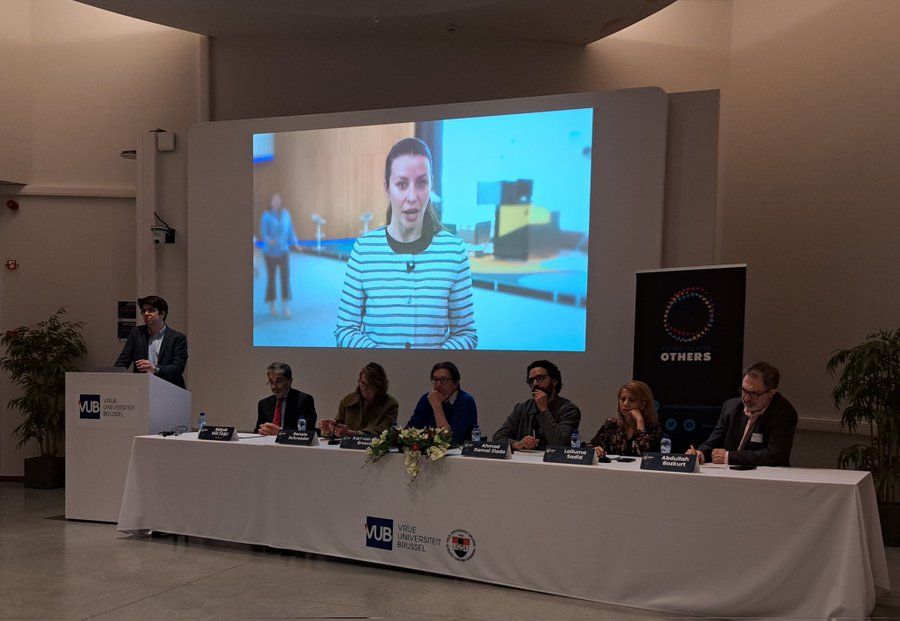
In her video message, Irena Joveva highlighted the increasingly dire situation for press freedom, marked by growing political pressure on independent media. She described the European Media Freedom Act (EMA) as a significant legal milestone aimed at protecting journalists’ independence. However, she emphasized that strong enforcement and judicial action are crucial for the EMA to be truly effective.
Joveva pointed out that media capture remains widespread, fueled by mechanisms such as state advertising, oligarch ownership, and direct political influence. She outlined several key challenges facing the media landscape today, including the financial struggles of professional journalism, the dominance of tech giants over advertising revenue, and the pervasive spread of misinformation on social media platforms.
Additionally, she warned about emerging threats posed by artificial intelligence in media content, which could further complicate the fight for truthful reporting. Joveva stressed that empowering journalists themselves to defend their independence is essential, reminding the audience that press freedom is far easier to defend proactively than to restore once it has been lost.
She concluded by reaffirming the critical role of journalistic professionalism and credibility in upholding democratic societies. A powerful example of this resilience and dedication to journalistic integrity can be seen in the personal story of Egyptian journalist Ahmed Gamal Ziada, who has continued his reporting in exile despite immense challenges.
Personal Story of an Exiled Egyptian Journalist: Ahmed Gamal Ziada
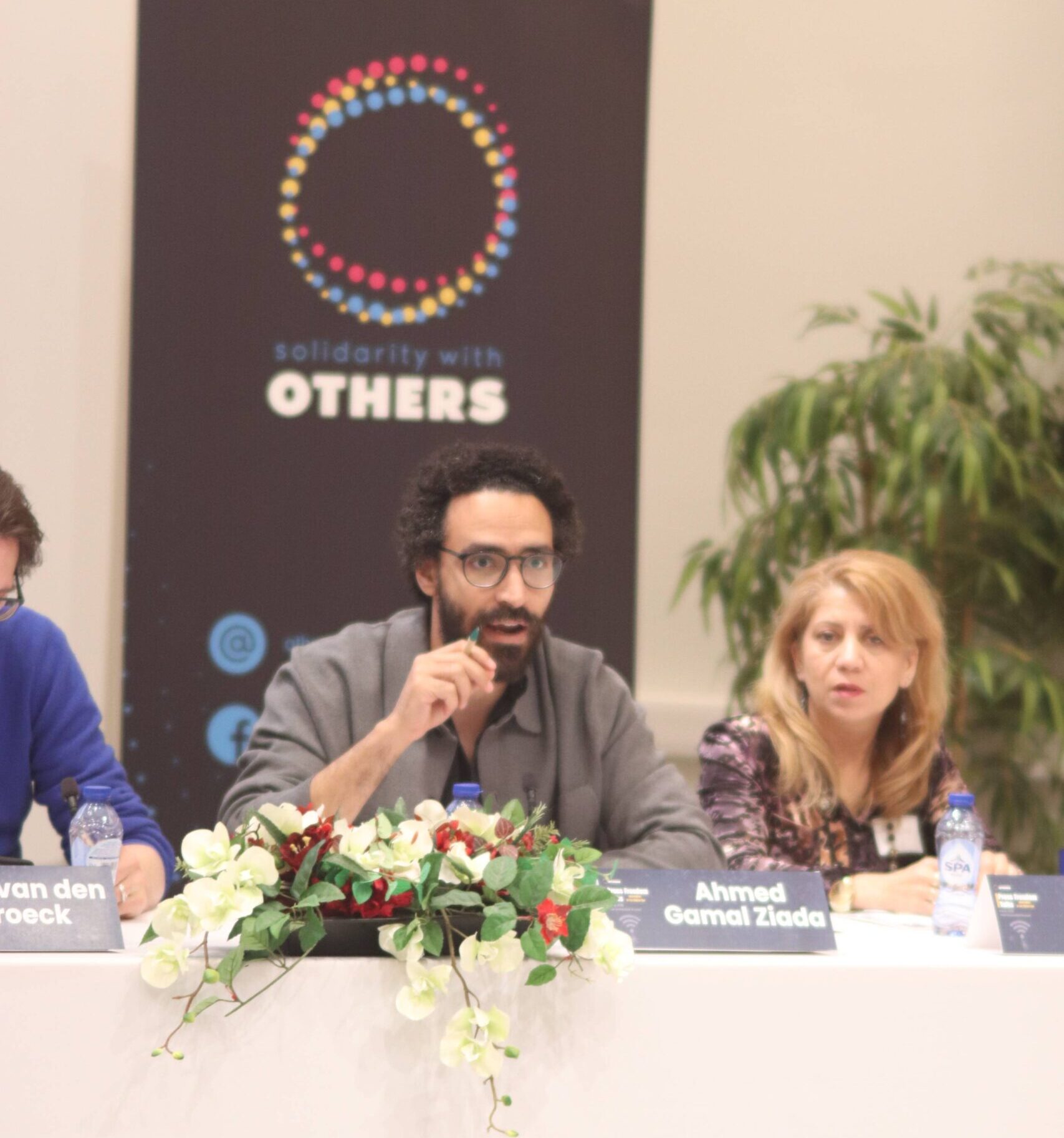
In his personal account, Ahmed Gamal Ziada shared the immense challenges and resilience involved in continuing investigative journalism after being forced into exile from Egypt in 2020. Following threats, arrests, and two imprisonments—including a 15-day enforced disappearance—Ahmed fled to Belgium, where he initially struggled without language skills or financial support.
Despite these hardships, Ahmed was determined to keep reporting. Without initial funding, he and his team began investigating critical issues such as the exploitation of Palestinians crossing from Gaza into Egypt. Their courageous work quickly gained attention and led to partnerships with trusted organizations and international media outlets like The Guardian. Over time, Ahmed’s platform became one of the most important independent news sources for Egyptians inside the country.
Due to the sensitive nature of their investigations, their website was blocked twice by the Egyptian government. To overcome this, Ahmed’s team developed technical solutions including mirror sites and a mobile app with built-in VPN technology, enabling Egyptians to access their content despite strict censorship.
Ahmed emphasized that journalists in exile are often seen by the European Union merely as victims needing training. He rejected this notion, asserting that they are professionals and leaders in their field. What they truly need is political support to hold oppressive regimes accountable and to protect press freedom.
Throughout his story, Ahmed highlighted his resilience and determination, refusing to see himself as a victim despite the many obstacles he has faced in exile.
Insights from Karl Van de Broek, Editor-in-Chief of Apache:
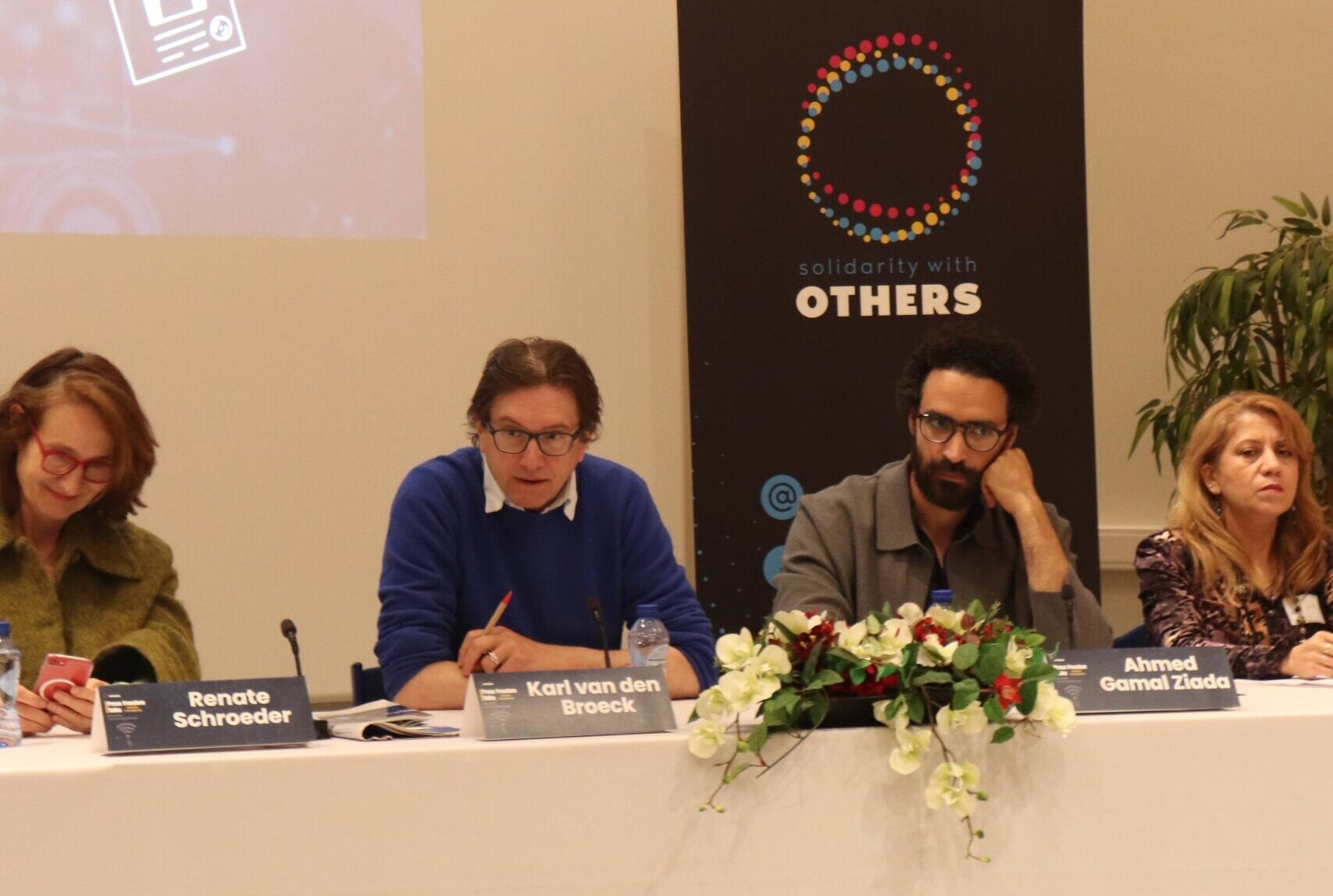
Karl Van de Broek shared an in-depth reflection on the founding and ongoing mission of Apache, the independent investigative journalism platform he leads. Launched in 2009, Apache began as a modest digital experiment offering free, quality journalism to the public at a time before smartphones and social media had reshaped news consumption. Karl emphasized how this timing meant Apache was born into a very different media environment—one that was soon to be dramatically transformed by the rise of tech giants like Facebook and Google.
He highlighted the profound impact these digital monopolies have had on traditional media, particularly through their control over advertising revenues. This shift, Karl explained, has contributed significantly to the financial crisis facing independent journalism today, making sustainable funding models a critical concern. Karl described how Apache has responded by organizing as a cooperative, owned by thousands of reader-shareholders. This structure protects editorial independence, enabling journalists to pursue stories without pressure from corporate owners or wealthy investors.
Beyond funding, Karl spoke about the wider risks facing media freedom in the digital age. He warned of the extensive surveillance capabilities of large tech companies, which gather unprecedented amounts of user data—creating an environment far more invasive than the dystopian visions of George Orwell. This raises urgent questions about privacy, freedom of expression, and the role of digital platforms in shaping public discourse.
Karl also suggested that journalism’s financial sustainability could benefit from models similar to those supporting American universities: a combination of government subsidies, income from services, and robust civil society support. He portrayed this hybrid approach as a promising path forward in an era where purely market-driven media are increasingly vulnerable.
Overall, Karl’s remarks painted a picture of both the challenges and innovative responses shaping independent journalism today, emphasizing resilience, reader engagement, and the pursuit of media freedom in an era dominated by digital monopolies and political pressures.
Remarks by Renate Schroeder, Director of the European Federation of Journalists
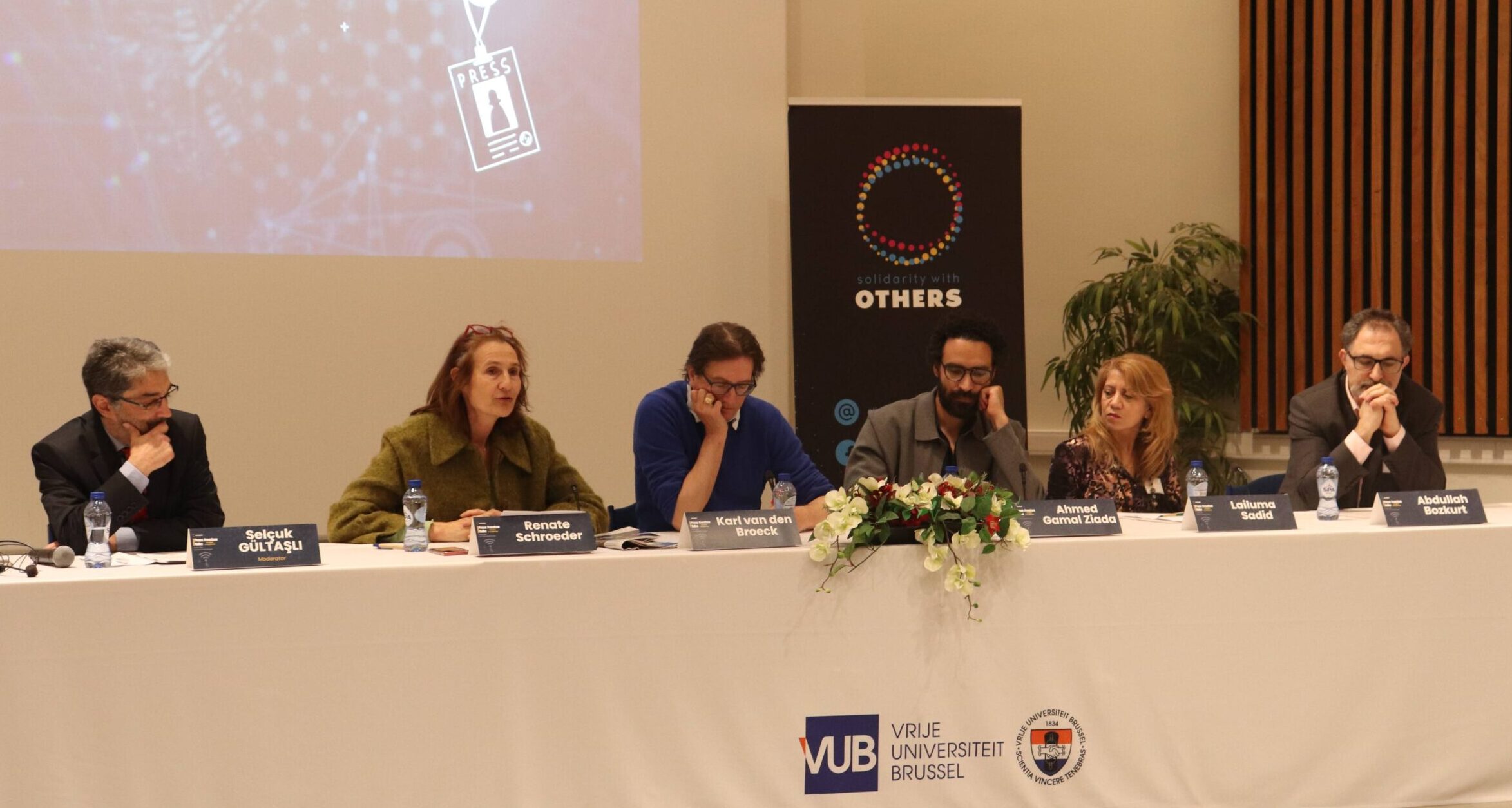
Renate Schroeder, director of the European Federation of Journalists (EFJ), which represents journalists’ unions and associations across Europe, opened by emphasizing the critical challenges facing press freedom today. Speaking after recently attending a European Parliament working group on the European Media Freedom Act, Schroeder highlighted that journalists are increasingly under attack simply for doing their job. These attacks are multifaceted, ranging from censorship and intimidation to political pressure and physical violence.
Schroeder stressed the importance of solidarity with journalists and media professionals who face threats during times of social and political turmoil across Europe and beyond. Public interest journalism remains essential, yet it is under unprecedented pressure in an increasingly toxic information ecosystem dominated by misinformation and sensationalism, which often overshadows factual reporting.
Schroeder applauded recent EU initiatives such as the European Media Freedom Act, the Digital Services Act, and anti-SLAPP legislation as significant steps toward protecting journalists. However, she cautioned that defending democratic values must not be sacrificed for security concerns, underscoring that “there is no security without media freedom.” Despite these legal frameworks, Schroeder warned that the political will to uphold press freedom remains fragile, particularly in the face of rising far-right influence and political polarization.
She outlined four major challenges undermining European media resilience: political polarization, disinformation, far-right influence, and increasing political pressure to restrict independent reporting under national security pretenses. Public service media face cuts and political capture, threatening their ability to provide impartial journalism.
Schroeder also highlighted the alarming rise in attacks on journalists—over 1,400 recorded last year—targeting nearly 2,500 individuals and media organizations. These attacks include verbal assaults, censorship, and physical violence, often perpetrated by both private individuals and government entities. Online harassment is prevalent, and many attackers remain unidentified, fostering a climate of impunity. Protests in countries like Germany, Georgia, Serbia, and Turkey have seen significant violence against journalists, with nearly half the attacks during demonstrations being physical and resulting in injuries.
The European Federation of Journalists is actively monitoring these attacks through a media freedom mapping project, providing legal and psychological support to affected journalists. Schroeder concluded by urging decisive action from the EU, member states, and candidate countries to uphold media freedom as a cornerstone of democratic society.
Insights from Lailuma Sadid on Press Freedom and the Struggle of Women Journalists in Afghanistan:
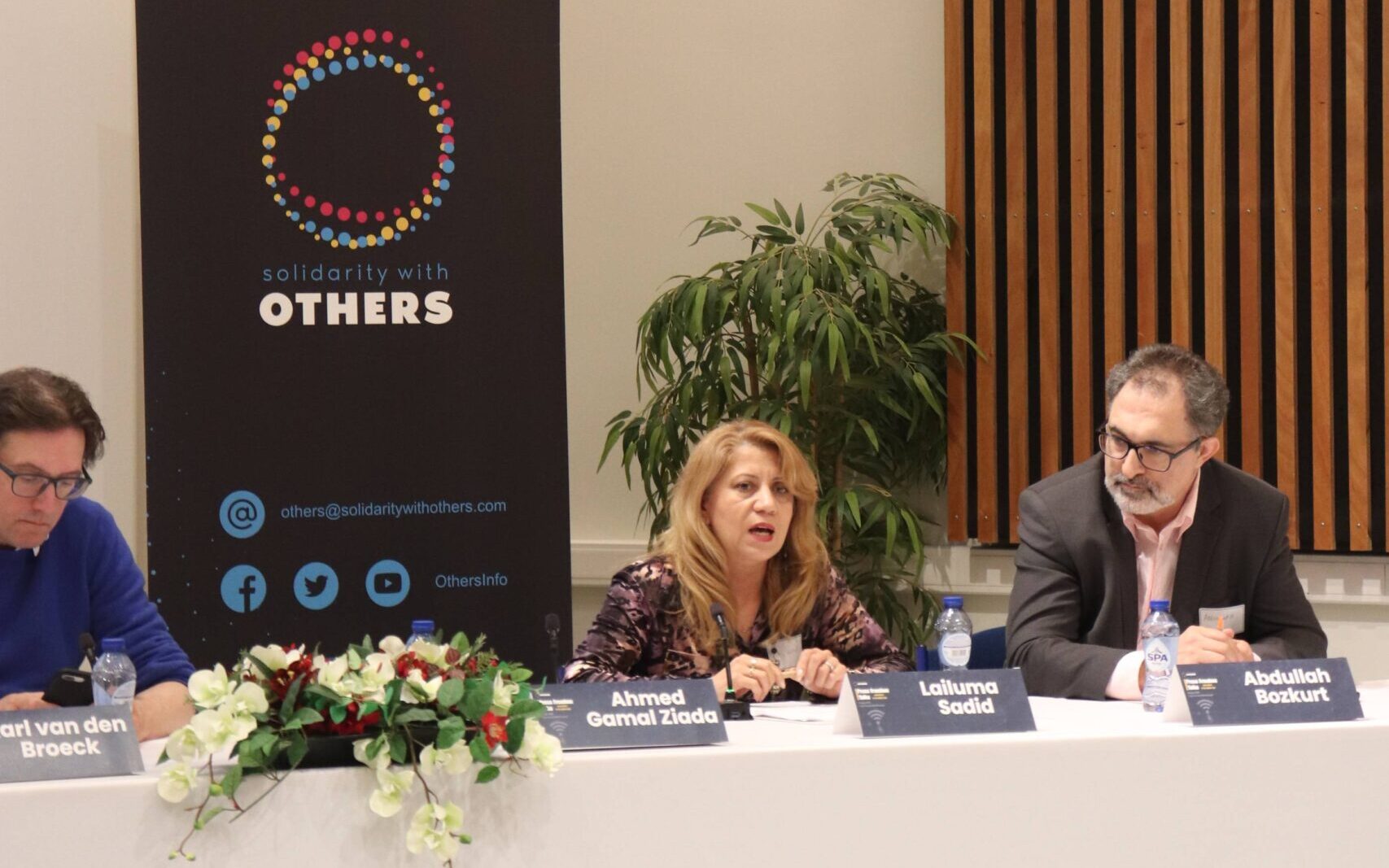
“Journalism is not a crime, and being a woman should never be a reason to be targeted or silenced.”
Lailuma Sadid opened her remarks by expressing gratitude for the opportunity to speak on an issue that is both deeply personal and urgently critical: the dire state of press freedom in Afghanistan, especially the extraordinary challenges faced by women journalists under the Taliban regime.
Since the Taliban’s return to power in August 2021, Afghanistan has rapidly become one of the most dangerous places in the world for journalists, and even more so for women in the media. Once a fragile democracy with a vibrant press scene, Afghanistan’s media landscape has been systematically dismantled. Before 2021, approximately 400 media outlets operated across the country, employing around 12,000 media professionals. Since the Taliban takeover, more than 250 outlets have shut down, and roughly 8,500 media workers have lost their jobs. Many journalists have been forced to flee, change professions, or hide due to escalating threats.
Women constitute about 85% of those most severely impacted. Lailuma highlighted that Afghanistan now ranks 178th out of 180 countries in the Reporters Without Borders’ Press Freedom Index, reflecting a near-total absence of press freedom. For women journalists, this repression is not merely censorship—it is outright erasure. Those who once bravely held microphones and reported on vital issues, especially women’s rights, now face harassment, abuse, imprisonment, forced marriages, exile, and constant threats simply for doing their jobs.
She described the alarming restrictions placed on women in media: women are forbidden from appearing on television screens, their voices are banned from broadcasts, and the Taliban has even prohibited human images on TV. Given the country’s high illiteracy rates, these bans on visual and audio media effectively silence millions who rely on television for information.
Despite these overwhelming challenges, Lailuma emphasized that brave women journalists continue to resist—often working secretly inside Afghanistan or from exile. They use every platform available to tell the world the truth about the situation back home. However, she lamented the lack of adequate international attention and action. Organizations such as the United Nations and the European Union, even in places where exiled journalists live and work, have largely failed to respond effectively. This neglect leaves many journalists feeling invisible, unheard, and unsupported.
Lailuma spoke passionately as a voice for those who can no longer speak freely—her colleagues silenced, detained, or forced into exile. She called for international solidarity, stressing that support for at-risk journalists is not a luxury but a lifeline. There is an urgent need for safe pathways for journalists fleeing persecution and for sustained support to exiled media professionals who continue their work abroad.
Drawing from her own experience—18 years in Afghan media and ongoing challenges finding journalistic work in exile despite her qualifications—Lailuma urged organizations to strengthen efforts to support displaced journalists. She shared how, despite working mostly unpaid, she and her colleagues continue to maintain their journalistic identities and commitment to truth-telling, refusing to be silenced or forgotten.
In closing, Lailuma affirmed a powerful message: Journalism is not a crime, and being a woman should never be a reason to be targeted or silenced. She called for renewed global efforts to protect press freedom and to amplify the courageous voices of women journalists in Afghanistan.
Abdullah Bozkurt – Investigative Journalist & Founder of Nordic Monitor
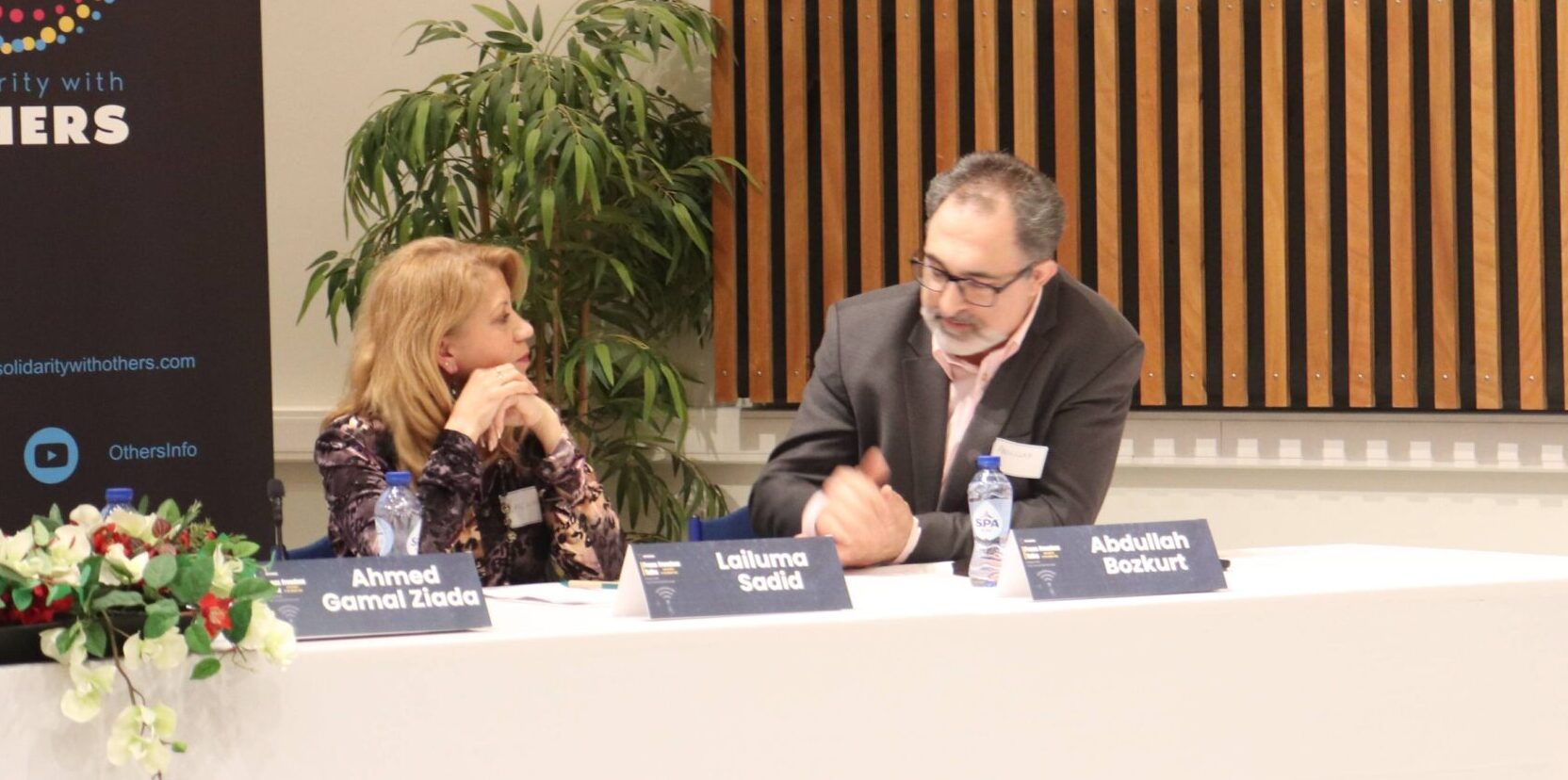
Abdullah Bozkurt began by recounting his experience working for Zaman, once Turkey’s largest national newspaper. When the paper began publishing a major corruption exposé involving members of then-Prime Minister Erdoğan’s family, the government reacted harshly. Erdoğan adopted tactics similar to those seen in other countries today—labeling critical media as “fake news,” pressuring advertisers, and trying to choke the paper financially.
Despite losing advertising revenue, Zaman’s subscription numbers actually increased, reaching 1.2 million. This public support frustrated Erdoğan, who then fabricated a legal case and, two years later, seized control of the newspaper. Readers, however, immediately reacted by withdrawing their support. Within a week, the paid subscriber base vanished. The government then shut down the paper entirely.
This was only the beginning. In 2016, following a failed coup attempt, the government used the situation as a pretext to shut down nearly 200 media outlets in a single day and arrested hundreds of journalists. Bozkurt was among many who fled the country, eventually finding refuge in Sweden—a country with strong and historic protections for press freedom.
Bozkurt emphasized how few exiled journalists are able to continue their work. Many face financial hardship, persistent harassment, and credible threats to their safety. As a result, many are forced to abandon journalism altogether. He stressed the importance of support—not only financial but moral—from professional organizations such as CPJ, EFJ, and national journalist unions.
He shared a personal story of being attacked in front of his home in Sweden four years ago due to his critical reporting on the Turkish government. In that moment of doubt and fear, the public solidarity expressed by the Swedish Journalists’ Union, the European Federation of Journalists, and the Council of Europe proved invaluable. It reminded him that the work he was doing mattered and that he was not alone.
He also highlighted the lengths to which authoritarian governments will go to silence critics. Turkey has repeatedly tried to shut down the Council of Europe’s media alert platform, demonstrating how much such platforms matter. Bozkurt noted that the Turkish government closely monitors the statements and actions of international press freedom organizations.
Now in exile, he continues his advocacy and journalism work through two organizations he founded in Sweden: the Stockholm Center for Freedom, an advocacy group, and Nordic Monitor, an investigative journalism platform. During Sweden and Finland’s NATO accession talks, the Erdoğan government demanded that Sweden shut down Nordic Monitor—a demand Sweden refused.
Finally, Bozkurt warned that autocratic regimes misuse international mechanisms like Interpol, mutual legal assistance, and extradition treaties to target journalists in exile. These tools, meant for cooperation on criminal matters, are being weaponized to silence dissent.


